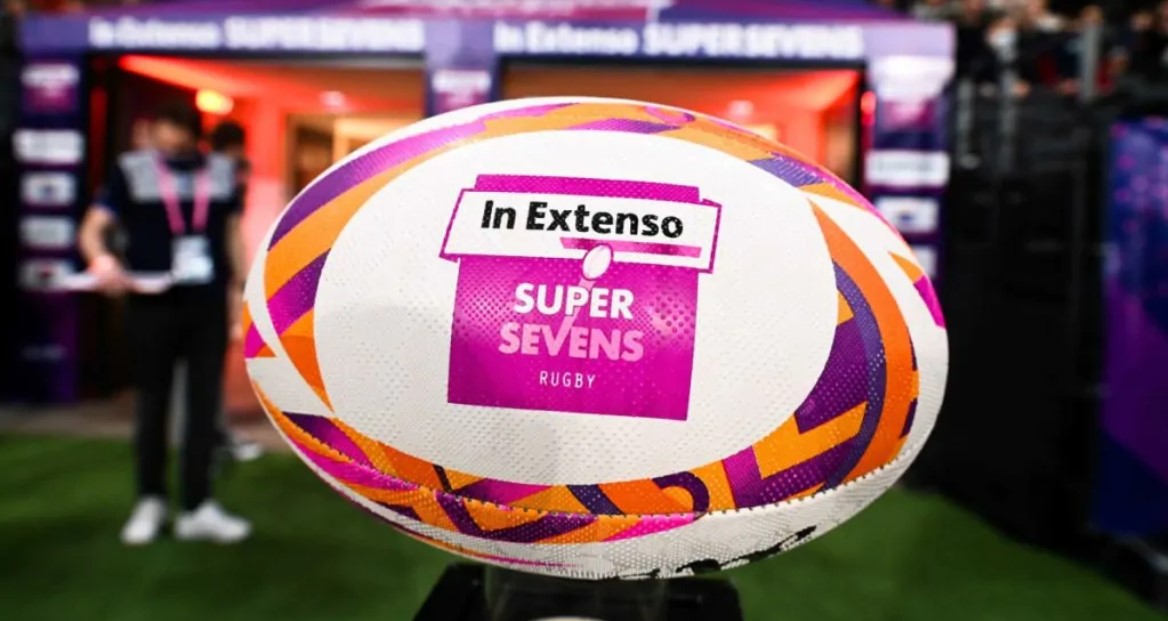Le Super Sevens veut prolonger la fête du titre olympique

Avec AFP
Quelques semaines après le titre olympique de l’équipe masculine de rugby à VII, le championnat de France de la discipline fait sa deuxième étape samedi à La Rochelle pour continuer son développement.
Le Supersevens, premier championnat professionnel de clubs consacré au rugby à VII en France, se déroule en trois étapes durant l’été avant une
finale, prévue le 1er février 2025 à La Défense Arena de Nanterre, où joue le Racing 92.
Sont qualifiés les clubs du Top 14, ainsi que Monaco et les Barbarians, tenants du titre, mais seules les huit meilleures équipes participent à
l’étape finale.
La plupart des champions olympiques au repos
La majorité des champions olympiques de Paris, comme le capitaine Paulin Riva ou l’ailier Aaron Grandidier, marqueur d’essai lors de la finale contre les Fidji (28-7), ont déjà joué dans ce championnat. Laissés au repos depuis leur sacre, ils ne seront pas sur le terrain lors des étapes qualificatives, d’autant plus que plusieurs d’entre-eux ont basculé vers le rugby à XV.
Les spectateurs rochelais, ville de la deuxième étape samedi, pourront tout de même voir la médaille d’or de Jean-Pascal Barraque, qui est attendu au stade Marcel-Deflandre.
Retrouvez nous demain à La Rochelle pour la 2ème étape de l’ #InExtensoSupersevens, voici le programme qui vous attend :
🏉 Des matchs toute la journée
🧗 Un mur d’escalade
🤪 Tribune Crazy
🎵 DJ Set
🦸♂ Concours de déguisement⏩ Places toujours disponibles juste ici :… pic.twitter.com/z3rVcCMTqb
— IN EXTENSO SUPERSEVENS Rugby (@supersevens) August 23, 2024
La première étape, disputée à Mont-de-Marsan, a été remportée par l’Union Bordeaux-Bègles (UBB) devant le Racing 92 et Monaco.
Mais, comme le veut la culture des Septistes, le spectacle est sur le terrain comme en dehors, avec de nombreuses animations proposées en marge des matches, organisés sur une après-midi et une soirée complètes.
Les clubs de Top 14 se mettent au Sevens
La Ligue nationale de rugby (LNR), organisatrice de la compétition, a souligné une forte hausse des ventes par rapport aux premières étapes de 2023, même si le bilan ne sera fait qu’après l’étape de Pau, le 31 août.
A Mont-de-Marsan, environ 5 000 billets ont été vendus malgré le pont du 15 août et le fait que le club de la ville, qui évolue en deuxième division, ne participe pas à la compétition. Encore davantage de spectateurs sont attendus lors des deux prochaines étapes.
Autre signe de l’engouement, les clubs de Top 14 commencent de plus en plus à mettre en avant la discipline : le Stade Rochelais a lancé en juin une
section à 7 tandis que l’UBB a intégré pour l’été deux internationaux argentins ayant pris par aux Jeux.


